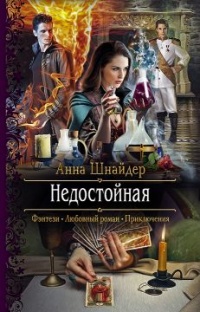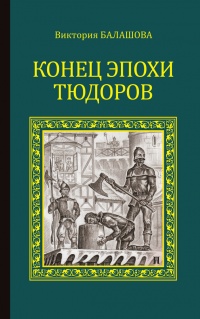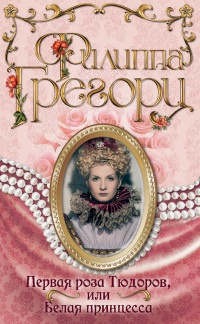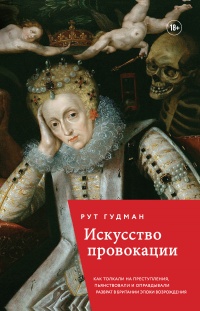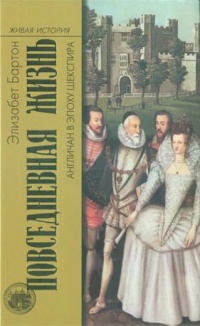Книга Как жить в эпоху Тюдоров. Повседневная реальность в Англии ХVI века - Рут Гудман
Шрифт:
Интервал:
Закладка:
_____. Patterns of Fashion: The Cut and Construction of Clothes for Men and Women c.1560–1620. London, Macmillan, 1985.
_____. Patterns of Fashion: The Cut and Construction of Linen Shirts, Smocks, Neckwear, Headwear and Accessories for Men and Women c.1540–1660. London, Macmillan, 2008.
_____. Queen Elizabeth’s Wardrobe Unlock’d. Leeds, Maney Publishing, 1988.
Arnold Richard. A Chronicle. London, 1503.
Ascham Roger. Toxophilus. London, 1545.
Aydelotte Frank. Elizabethan Rogues and Vagabonds. London, Frank Cass & Co, 1967.
Bales Peter. The Writing Schoolemaster. London, 1590.
Bath Michael. Renaissance Decorative Painting in Scotland. Edinburgh, National Museums of Scotland, 2003.
Beauchesne John de. A Booke Containing Diverse Sorts of Hands. London, 1570.
Becon Thomas. Homilies: Against Whoredom. London, 1560.
Berger Ronald M. The Most Necessary Luxuries: The Mercers’ Company of Coventry 1550–1680. Philidelphia, Pennsylvania State University Press, 1993.
Beza Theodore. Household Prayers. London, 1603.
Biringuccio Vannoccio. Pirotechnia. Venice, 1540.
Boorde Andrewe. A Compendyous Regiment of Healthe. London, 1540.
Braithwaite Richard. Some Rules and Orders for the Government of the House of an Earl. 1603.
Bray Alan. Homosexuality in Renaissance England. London, Gay Men’s Press, 1982.
Brayshay Mark. Land Travel and Communications in Tudor and Stuart England: Achieving a Joined-up Realm. Liverpool, Liverpool University press, 2014.
Brunscheig Hieronymous. Vertuous Boke of Distyllation. London, 1527.
Buck Anne. The Clothes of Thomasine Petre 1555–1559 // Costume. Vol. 24. Leeds, Maney Publishing, 1990.
Bullein William. The Government of Health. London, 1558.
Burch C.E.C. Minstrels and Players in Southampton 1428–1635. Southampton, City of Southampton, 1969.
Buttes Henry. Diets Drie Dinner. London, 1599.
Capp Bernard. When Gossips Meet: Women, Family and Neighbourhood in Early Modern England. Oxford, Oxford University Press, 2003.
Cardano Girolamo. Liber de Ludo Aleae. 1564; first published Lyons, 1663.
Caroso Fabritio. Nobiltà di Dame. Venice, 1600.
Chandler John (ed.). John Leland’s Itinerary: Travels in Tudor England. Stroud, Sutton Publishing, 1993.
Clopper Lawrence M. (ed.). Records of Early English Drama: Chester. Manchester, Manchester University Press, 1979.
Cogan Thomas. The Haven of Health. London, 1584.
Collinson Patrick. The Elizabethan Puritan Movement. Oxford, Clarendon Press, 1967.
Cooper Tarnya. Citizen Portrait: Portrait Painting and the Urban Elite of Tudor and Jacobean England and Wales. New Haven and London, Yale University Press, 2012.
Coote Edmunde. The English Schoolmaster. London, 1596.
Copeland Robert. The Manner of Dauncynge Bace Daunces. London, 1521.
_____. The Seven Sorrows that Women have when their Husbandes be Deade. London, 1526.
Davies Kathryne. Artisan Art: Vernacular Wall Painting in the Welsh Marches 1550–1650. Little Logaston, Logaston Press, 2008.
Dawson Mark. Plenti and Grase: Food and Drink in a Sixteenth-century Household. Totnes, Prospect Books, 2009.
Dawson Thomas. The Good Housewife’s Jewel. London, 1596.
Dickerman Susan. Painted Prints: The Revelation of Color. Philadelphia, Pennsylvania State University Press, 2002.
Dietz Brian (ed.). The Port and Trade of Early Elizabethan London Documents. London, London Record Society, 1972.
Duffy Eamon. Marking the Hours. New Haven and London, Yale University Press, 2006.
_____. The Stripping of the Altars: Traditional Religion in England 1400–1580. New Haven and London, Yale University Press, 1992.
Dugen Holly. The Ephemeral History of Perfume. Baltimore, John Hopkins University Press, 2011.
Durston Christopher, Eales Jacqueline (eds.). The Culture of English Puritanism 1560–1700. London, Macmillan, 1996.
Eccles Christine. The Rose Theatre. London, Walker Books, 1990.
Edwards Peter. The Horse Trade of Tudor and Stuart England. Cambridge, Cambridge University Press, 1988.
Elyot Sir Thomas. The Banket of Sapience. London, 1534.
_____. The Boke Named the Governour. London, 1531.
_____. The Castel of Health. London, 1534.
Emmison F.G. (ed.). Essex Wills: The Archdeaconry Courts 1577–1584. Chelmsford, Essex Record Office, 1987.
_____. Essex Wills: The Archdeaconry Courts 1583–1592. Chelmsford, Essex Record Office, 1989.
_____. Essex Wills: The Archdeaconry Courts 1591–1597. Chelmsford, Essex Record Office, 1991.
_____. Essex Wills: The Archdeaconry Courts 1597–1603. Chelmsford, Essex Record Office, 1990.
_____. Essex Wills: The Commissary Court 1558–1569. Chelmsford, Essex Record Office, 1993.
_____. Essex Wills: The Commissary Court 1569–1578. Chelmsford, Essex Record Office, 1994.
_____. Essex Wills: The Commissary Court 1578–1588. Chelmsford, Essex Record Office, 1995.
Englefield W.A.D. The History of the Painter-Stainers Company of London. London, Hazell, Watson & Viney Ltd, 1923.
Erasmus Desiderius. The Civilitie of Childehode. London, 1530.
Fissell Mary E. Vernacular Bodies: The Politics of Reproduction in Early Modern England. Oxford, Oxford University Press, 2004.
Fitzherbert John. The Boke of Husbandry. London, 1533.
Foakes R.A. (ed.). Henslowe’s Diary. Cambridge, Cambridge University Press, 1982.
Fox Adam. Oral and Literate Culture in England 1500–1700. Oxford, Oxford University Press, 2000.
Gardiner Julie, Allen Michael J. Before the Mast: Life and Death Aboard the Mary Rose. Portsmouth, Mary Rose Trust, 2005.
Gent Lucy, Llewellyn Nigel (eds.). Renaissance Bodies: The Human Figure in English Culture c. 1540–1660. London, Reaktion Books, 1990.
Gesner Konrad. The Newe Jewell of Health. 1576.
_____. The Treasury of Euonymous. 1559.




















